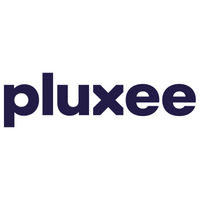How to make health and wellbeing benefits more equitable
Equity and equality are often interchanged, but the concepts are quite different.
Equality usually encompasses a one-fits-all approach – giving every employee the same tool to achieve a specific goal regardless of individual needs or restrictions.
Equity, meanwhile, considers individual needs, giving them the right tool that allows them an equal chance to achieve the same goal.
Envision a tall fence and three people of different heights. Giving them the same size box to stand on so they can see over the top would be equal but may only mean that one or two people can see over the fence. The equitable approach is giving each person a size-appropriate box that enables them to see.
Applying it to health and wellbeing
The go-to health offering in the workplace is private medical insurance (PMI). Even if offered to all employees, regardless of seniority, some factors affect equity.
PMI is a benefit in kind – a taxable benefit that hits an employee’s take-home pay. With PMI, employees must pay a percentage of the cost of the policy, dictated by their salary and tax rate.
Businesses may adopt different policies or offer a blanket solution that doesn’t restrict ailments or known illnesses. This ensures the same cover is available to all and is an inclusive approach, but it raises questions about equitability.
Lowest earners hit harder
An employee in the 20% tax bracket would pay 20% of the company’s PMI, as would be the case for those in the 40% or 45% tax bracket.
Consider that the employer has a blanket policy with a set cost per employee – an equal approach. Then, factor in that the 20% tax bracket includes most salaries from £12,571 to £50,270 annually.
If the cost per policy is the same, an employee earning £28,000 will pay the same tax as an employee earning £49,000 for having PMI. This will have a vastly different impact on their take-home pay, with those at the lower end of the tax bracket more heavily affected than those on a higher salary.
Of course, taking on PMI through an employer is a choice, and employees need to consider the financial implications, especially if they wish to add family members at an extra cost.
PMI’s financial and taxable element prevents it from being considered an equitable employee health benefit. If some employees decide they cannot afford to pay the tax, they’ll be unable to access the same wellbeing benefits as their colleagues.
Digital health platforms cost businesses a fraction of the price of PMI, making them an effective and affordable alternative.
Pluxee UK explored the equitability of an online GP service during a podcast with Dr Olivia Codrington, a Lead GP at Doctor Care Anywhere. As well as discussing the savings to the employee and employer compared with PMI, the podcast highlights another aspect of healthcare inequity: postcode lotteries.
Remote working is becoming the norm, stretching the home addresses of employees across the country. Olivia says that ‘free’ NHS healthcare doesn’t mean ‘equal’ NHS healthcare: “In rural areas, some surgeries are lying empty, with no GPs wanting to move to those areas to fill them.”
An accessible online GP service could save UK businesses £1.5bn in lost time and reduce employee stress by speeding up access to GP appointments. Whether employees work from a desk, in a warehouse or in a delivery van, all they need to access the same healthcare opportunities as their colleagues is a phone, internet connection and a safe, quiet space, no matter their salary or address.
Supplied by REBA Associate Member, Pluxee UK
Pluxee UK, is a leading employee benefits and engagement partner that opens up a world of opportunities to help people enjoy more of what really matters in their lives.








